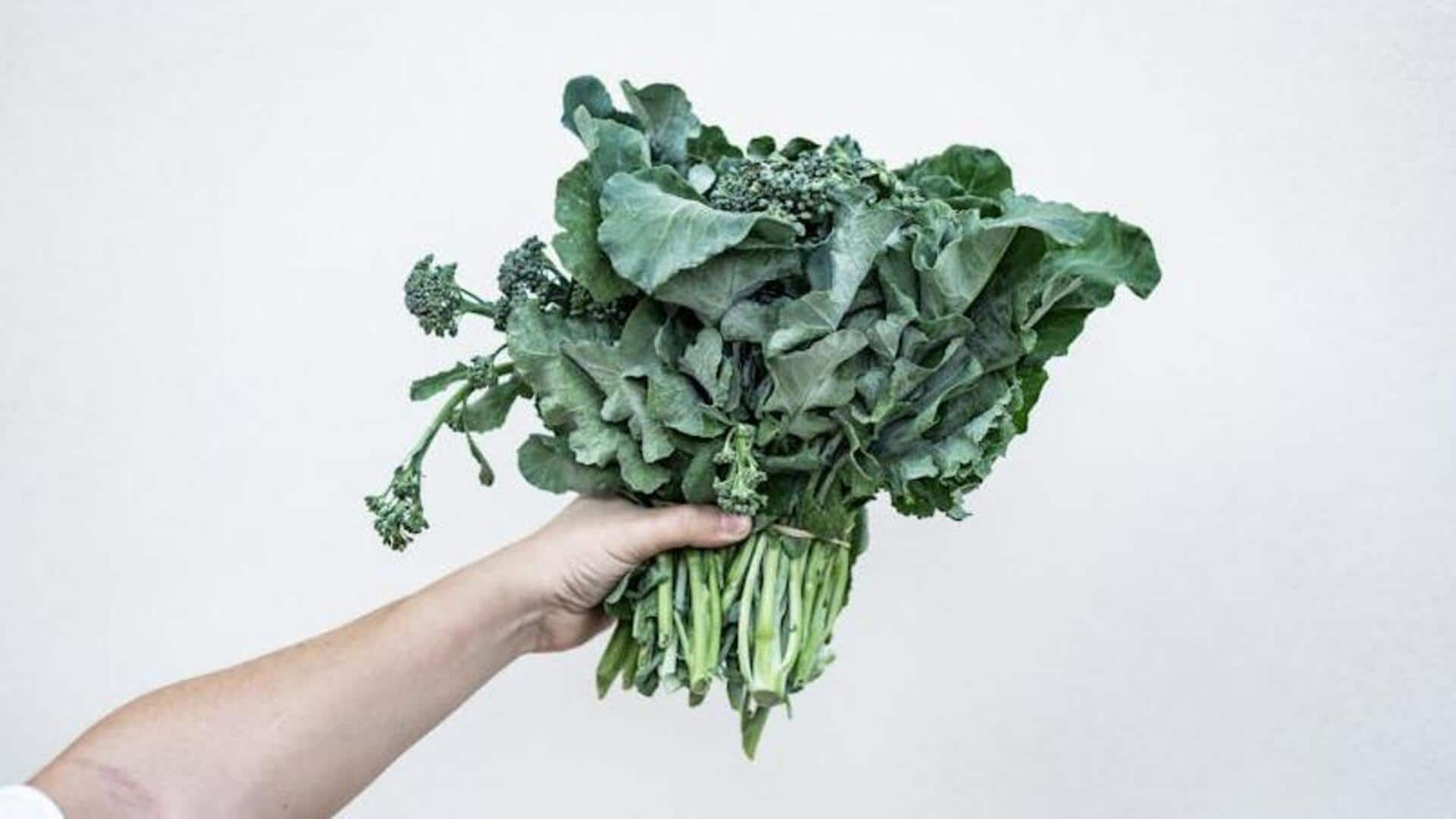
Kale v/s spinach: Which one has more nutrition?
What's the story
Kale and spinach are two leafy greens that are often praised for their nutritional benefits. Both are loaded with vitamins, minerals, and antioxidants that make them the perfect addition to a healthy diet. Although they are similar in some ways, each one has its own unique nutritional profiles that could suit different dietary requirements. Let's take a closer look at the nutrients in kale and spinach.
Vitamins
Vitamin content comparison
Kale is famous for its vitamin K content, offering over 600% of the daily recommended intake per serving. It also has a good amount of vitamins A and C. Spinach, however, is packed with vitamin A and offers about 47% of the daily value for vitamin C per serving. Both the greens offer necessary vitamins but differ in their concentration.
Minerals
Mineral richness
Spinach makes an excellent source of iron and magnesium, two minerals that are key to energy production and muscle function. Kale, meanwhile, is loaded with calcium and potassium, providing more than spinach. These minerals play an important role in maintaining bone health and regulating blood pressure levels, emphasizing the unique benefits each green brings to a well-balanced diet.
Antioxidants
Antioxidant levels
Both kale and spinach are loaded with antioxidants (beta-carotene and lutein) that are crucial to fight oxidative stress in the body. But kale takes the lead with its higher levels of quercetin and kaempferol. The two powerful antioxidants are famous for their numerous health benefits. Their presence in kale significantly contributes to its nutrition profile, making it a better choice for those looking to increase their antioxidant intake.
Calories & fiber
Caloric content and fiber
Despite having a slightly higher calorie count than spinach, kale is known for its fiber contribution. It offers an impressive amount of fiber per serving, making it a great option for those looking to increase their fiber intake. This quality of kale makes it attractive to those wanting to increase their dietary fiber intake without a significant increase in their calorie intake.